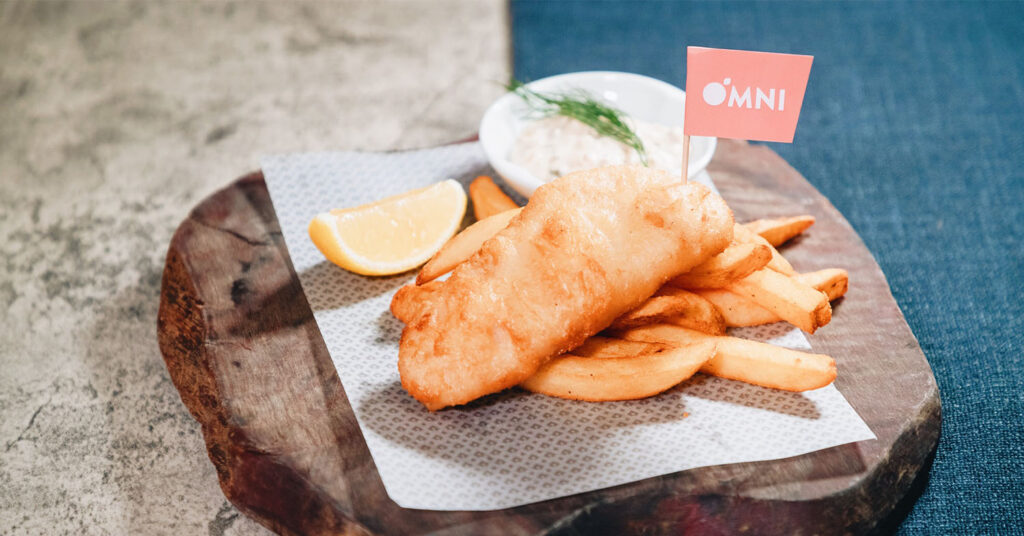OmniFoods has taken its vegan meat products from land to sea with its newest range: plant-based fish.
The food tech company is known for its OmniPork series, which it launched in 2018. The line features plant-based ground meat, strips, and, most recently, vegan spam. But now OmniFoods is looking to revolutionize the seafood industry.
It launched its newest range OmniSeafood on World Oceans Day. The line includes a variety of plant-based fish products: Omni Classic Fillet, Omni Golden Fillet, Omni Ocean Burger—available in original, battered, or breaded fish varieties—and OmniTuna. The company says it also plans to release OmniSalmon.
According to the company, OmniSeafood looks, cooks, and tastes similar to their ocean-derived counterparts. The company makes its plant-based fish products with a proprietary blend of non-GMO pea, soy, and rice protein. The fishless meats also contain omega-3 ALAs and are free from trans-fat, cholesterol, hormones, antibiotics, and preservatives.
Five-star hotel Cordis, Hong Kong and restaurant Ming Court, Wanchai will be the first to serve the new plant-based fish range. Both will launch dishes featuring OmniSeafood in July.
Tsang Chiu King, the culinary director at Ming Court, Wanchai, said he was particularly impressed by the brand’s vegan fish fillet. “Its high versatility and indistinguishable mouthfeel allows me to create a wide variety of dishes, especially the Chinese traditional dishes featuring white-flesh fish,” he explained in a statement. “It recreates the taste of the sea, becoming an ideal plant-based alternative to fish.”

Plant-Based Fish
The popularity of plant-based fish is on the rise. According to market research firm Fact.MR, experts predict the market will grow 28 percent over the next ten years and could be worth $1.3 billion by 2031.
Some are turning away from conventional seafood for environmental reasons.
In particular, marine pollution—which can take the form of plastic, garbage, toxic waste, and untreated sewage—is heating things up underwater. In addition to killing sea life, marine pollution disrupts water cycles and saturates the oceans with carbon dioxide, further fueling global warming.
According to David Yeung, the founder and CEO of Green Monday Group and OmniFoods, protecting the ocean was a key driver behind the plant-based fish range. “We cannot tackle climate change without taking care of the ocean,” he said in a press release sent to LIVEKINDLY.
“This breakthrough guarantees not only to wow our taste buds, but also to awaken our consciousness towards the ocean and the planet,” he continued. “With [the] milestone launch of OmniSeafood, we believe it is a big leap forward to a real sea change.”


